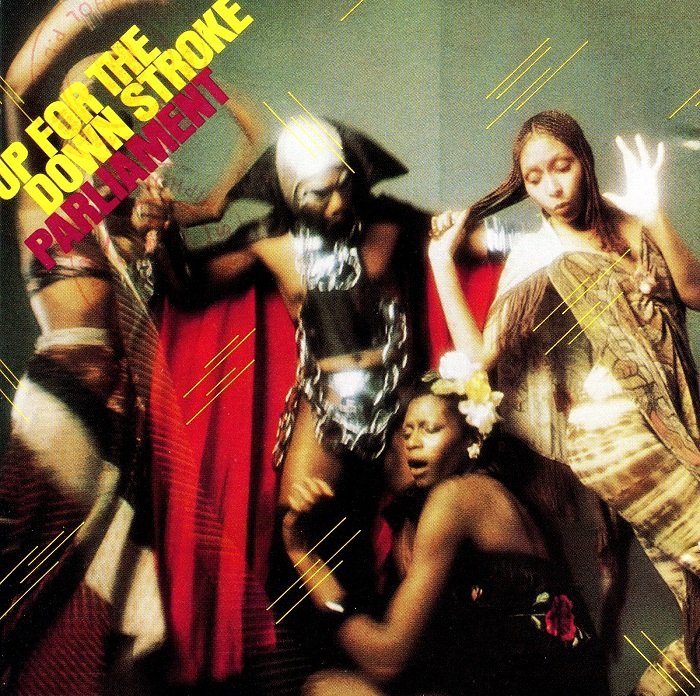12. Parliament

MB: I’d say that this is probably the greatest acid-funk album of all time. George Clinton’s a very interesting character, not perhaps as well known as James Brown but he’s lasted longer and I think his influence is just as great. I’m thinking of the Electric Kool-Aid Acid Test – it’s a great book but probably quite controversial. I’m in a weird position because I’m a white guy but I talk about black culture. It does say in that book that in the 60s and 70s, black people didn’t really like taking acid because you can’t be cool when you take acid and perhaps your coolness is all that you’ve got. So it’s not necessarily something that you want to take a risk on, right? But some black artists did get into it. Before funk was invented, it was called psychedelic soul, which is a wonderful term. If I had to name what I love about music it would be psychedelic soul – you’ve got the soul but you’ve also got something for the intellect, something that’s beyond the state of the mundane. Parliament nailed that and clearly George Clinton did end up taking a lot of acid and I think it opened their minds, and they produced incredible art and music as a result. We’re part of the tribe that imbibes that, and it went into us and became part of us as well. George Clinton is a great vocalist and the production’s really imaginative – their use of drum machines is pretty ahead of its time. I did end up tripping out to that album quite a bit.
This is Bootsy Collins’ first album with Parliament, am I right?
MB: That whole story of James Brown sacking his band, then on the same day picked up Bootsy and his mates as the new James Brown band. And then after a few years, they fell out and James Brown was rather strict and didn’t let any of the musicians take drugs or anything. So George Clinton scooped them up and positively encouraged them to freak out. So that must have been quite a trip – so those two, James Brown and George Clinton for me are two huge godfathers of music and it is interesting actually to cycle that back, it is incredible how a small number of particular musicians can have such a huge impact. So there we’re talking about Bootsy and Catfish and Fred and Macio, who were first with James Brown and later with George Clinton. Two huge branches of the music tree. With Adrian Sherwood, you’ve Skip McDonald, Doug Wimbish and Keith LeBlanc, who were the Sugarhill Gang, who were a core part of New York hip hop in its early stage. They came over and hooked up with Sherwood, who put them in contact with all of these Jamaican musicians and threw in some punk and new wave as well, all through the dub mixing desk. So those guys played on seminal recordings spanning really different scenes. I don’t think that they ever really credited what a unique fusion that was. You look at the music landscape now and it’s so huge and it’s got its big complicated history, but you can trace things back, if you’ve got a mind to, sometimes to actually a small number of key nodes. And I’d say: James Brown, Bootsy and Parliament are one of those nodes.


